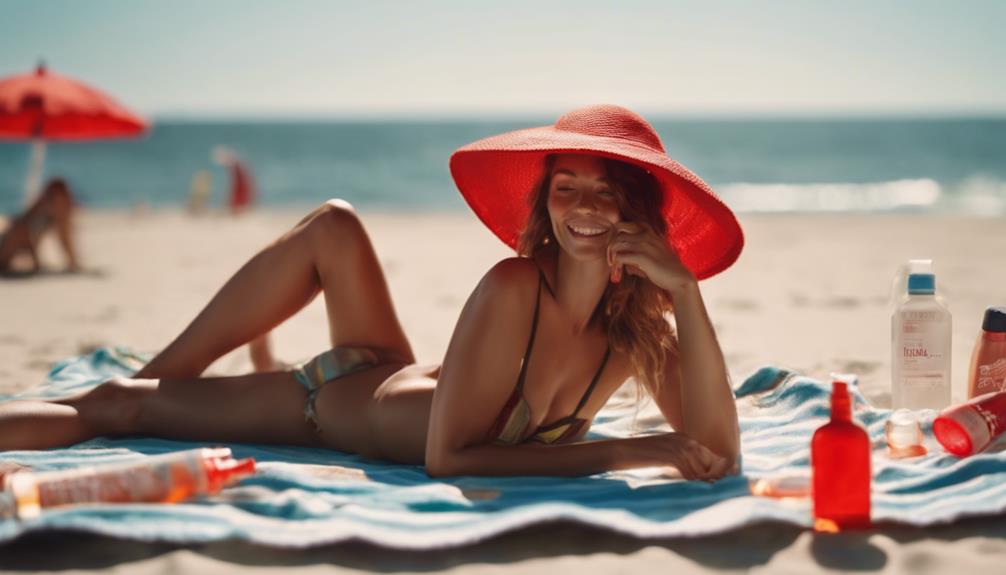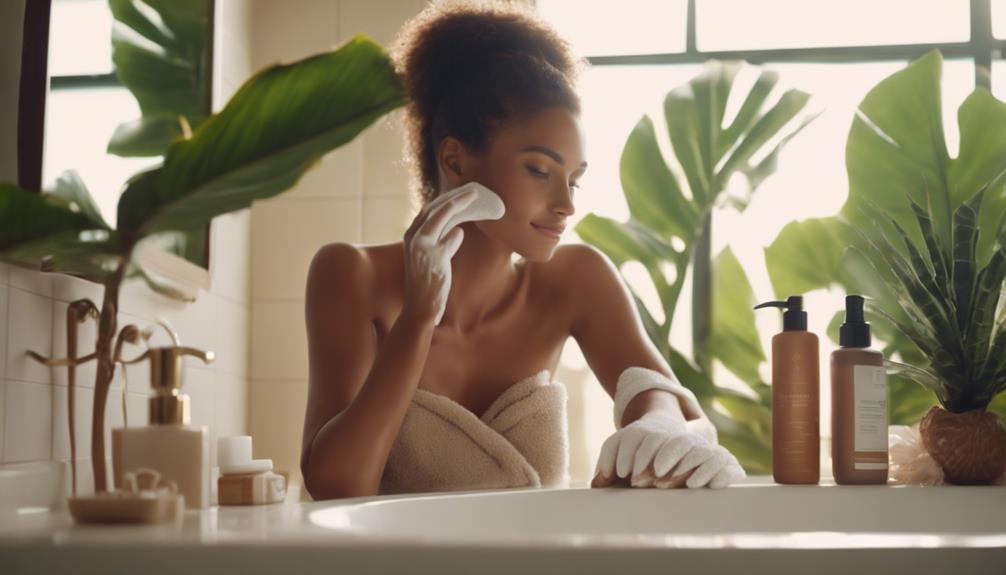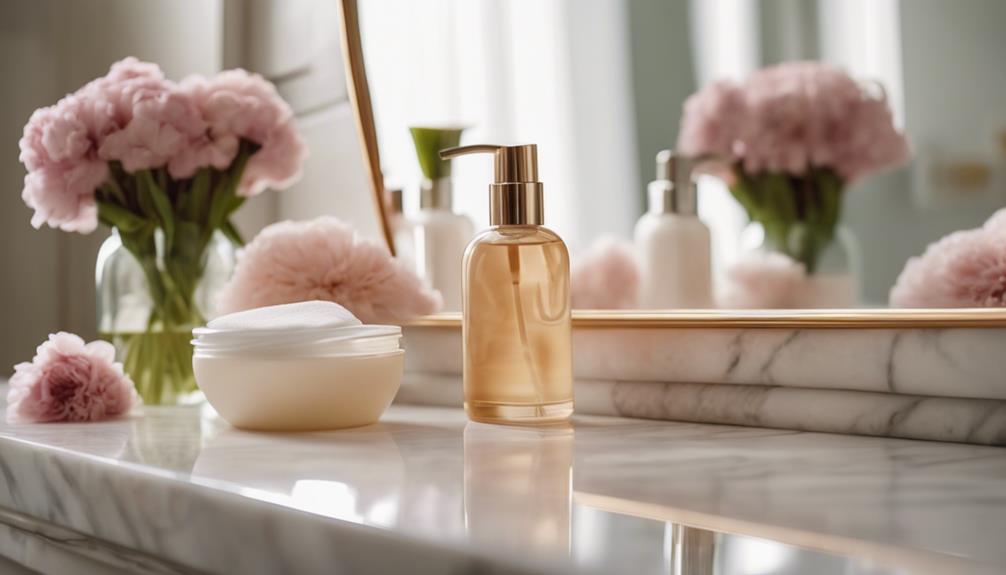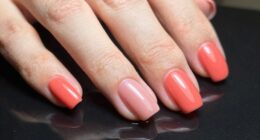If you're burning instead of tanning, don't blame it on bad luck! Your skin type and genetics are major players here. Fair skin, like that of redheads or blondes, is way more likely to sizzle under the sun. Tanning isn't a sign of protection either; it's a cry for help from your skin! So, if you're trying to rock that bronze glow, slather on SPF 30+, cover up during peak hours, or try a self-tanner instead. Understanding your skin's needs can keep it safe and happy. And guess what? There's a lot more to discover about sun safety!
Key Takeaways
- Fair skin types, like redheads and blondes, are more prone to burning due to lower melanin levels.
- UV radiation causes skin distress, leading to burns instead of a tan, regardless of skin type.
- Base tans offer minimal protection, making burning likely with prolonged sun exposure.
- Inadequate sunscreen application or low SPF can increase the risk of burning.
Skin Types and Genetics
Understanding your skin type and genetics is essential because they directly influence how your skin reacts to sun exposure, determining whether you'll tan or burn.
Think of your skin like a unique snowflake; no two are exactly alike! If you've got that fair complexion, like redheads or blondes, you're more likely to burn. Those with darker skin types, rich in melanin, have a natural shield against the sun, but they still need protection.
Your genes play a big role too—63 variations can affect how you tan or burn. So, before you hit the beach, knowing your skin type can save you from painful burns and give you a better chance at a golden glow.
Isn't that a fun fact?
Understanding UV Radiation

Recognizing the dangers of UV radiation is essential for protecting your skin and preventing long-term damage. Think of UV rays like tiny ninjas sneaking up on your skin. They can cause burns and even lead to premature aging. Whether you're fair-skinned or blessed with a rich melanin glow, your skin can still suffer if you're not careful.
Here are a few key points to keep in mind:
- All skin types are at risk. No one's off the hook!
- Tanning isn't a protective shield. It's your skin's way of saying, “Help!”
Common Myths About Tanning

Many people believe common myths about tanning that can lead to serious skin damage if not addressed. One of these myths is that a base tan can protect the skin from sunburn, when in fact any level of tanning is a sign of skin damage. Additionally, there is a misconception that tanning beds are safer than outdoor tanning, when in reality the risks of tanning salon visits include an increased risk of skin cancer and premature aging. It is important for people to educate themselves about the dangers of excessive sun exposure and the risks of using tanning beds in order to protect their skin and overall health.
For instance, some think a base tan protects against sunburn. Spoiler alert: it doesn't! A base tan is just your skin's way of saying, “Help!”
Tanning beds? They're not a safe shortcut; they can increase your risk of skin cancer just like the sun.
And don't be fooled by the idea that UV-free tans aren't cool. They give you that sun-kissed glow without the burn.
Remember, your skin's like a delicate flower; treat it right!
Preventing Skin Damage

To prevent skin damage, always apply a high SPF sunscreen before heading outdoors, especially during peak sun hours. Think of sunscreen as your skin's superhero cape! You wouldn't leave the house without your favorite outfit, right? Protecting your skin is just as important.
Here are a few extra tips to keep your skin happy:
- Wear protective clothing like long sleeves and wide-brimmed hats.
- Stay in the shade whenever possible, especially between 10 a.m. and 4 p.m.
Safe Tanning Alternatives

Exploring safe tanning alternatives can help you achieve a sun-kissed glow without risking your skin's health. Instead of roasting under the sun, why not try self-tanners, bronzers, or spray tans? These options give you that golden hue without the harmful UV rays. Plus, you get to control the shade!
Here's a quick look at some safe tanning options:
| Option | Pros | Cons |
|---|---|---|
| Self-Tanner | Easy to apply, customizable | Can streak if not applied evenly |
| Bronzer | Instant results | Wears off quickly |
| Spray Tan | Professional finish | Can be pricey |
| Tanning Lotion | Gradual tan | Takes time to develop |
| Tanning Wipes | Portable and convenient | May not last as long |
Addressing Common Concerns

Addressing concerns about skin safety and tanning is essential for maintaining your overall skin health and preventing long-term damage. You might be wondering why some people burn instead of tan or if there's a safe way to get that sun-kissed glow.
Here's the scoop:
- Skin type matters: If you've got fair skin, you're more likely to burn than tan.
- Sunscreen is your best friend: Don't skimp on SPF; it's your armor against harmful UV rays.
Trending Skin Care Practices

Trending skin care practices emphasize the importance of personalized routines that prioritize both protection and nourishment for your skin.
You've probably heard the buzz about custom serums and tailored routines, right? It's like finding the perfect pair of jeans—everyone's skin is different! You should definitely consider your skin type when choosing products. No more one-size-fits-all!
And don't forget about sunscreen; it's your best buddy against those sneaky UV rays. Think of it as a shield in a video game—totally necessary!
Plus, self-tanners are making waves, letting you glow without the burn.
Frequently Asked Questions
Can Certain Medications Increase My Skin's Sensitivity to Sunlight?
Yes, certain medications can definitely increase your skin's sensitivity to sunlight. It's important to check with your doctor about any side effects and to use sunscreen to protect your skin from potential damage.
How Does My Diet Impact My Skin's Ability to Tan?
Your diet can dramatically affect your skin’s ability to tan. Eating foods rich in antioxidants and healthy fats boosts melanin production, helping you achieve that golden glow without risking painful burns. So, munch wisely! In addition to a healthy diet, staying hydrated and protecting your skin with sunscreen can also improve your tanning experience. It’s important to remember that tanning and weight loss are not the same thing, and maintaining a healthy weight through balanced nutrition and exercise is essential for overall skin health. By prioritizing both proper nutrition and a healthy weight, you can achieve a glowing tan while taking care of your body.
Are There Specific Times of Year When Tanning Is Safer?
Yes, late spring and early fall are generally safer for tanning. The sun's angle reduces UV intensity, making it less likely you'll burn. Always use sunscreen and limit exposure, regardless of the season, for ideal safety.
Can My Skin's Condition Affect Its Tanning Ability?
Yes, your skin's condition can affect its tanning ability. Factors like hydration, exfoliation, and overall health impact how well your skin tans. Keeping your skin in good condition enhances your chances of achieving a beautiful tan.
What Role Do Antioxidants Play in Skin Protection From UV Rays?
Antioxidants are like tiny superheroes for your skin, battling UV damage while you soak up the sun. They neutralize free radicals, helping you protect against premature aging and skin issues. So, don't skip them!
Conclusion
So, remember, 'an ounce of prevention is worth a pound of cure.'
By understanding your skin type and how UV radiation affects you, you can dodge those painful burns and rock a healthy glow instead.
Don't fall for the myths—sunscreen is your best friend!
With a little knowledge and the right strategies, you can enjoy the sun safely.
Let's keep your skin happy and glowing, because you deserve to shine without the burn!









